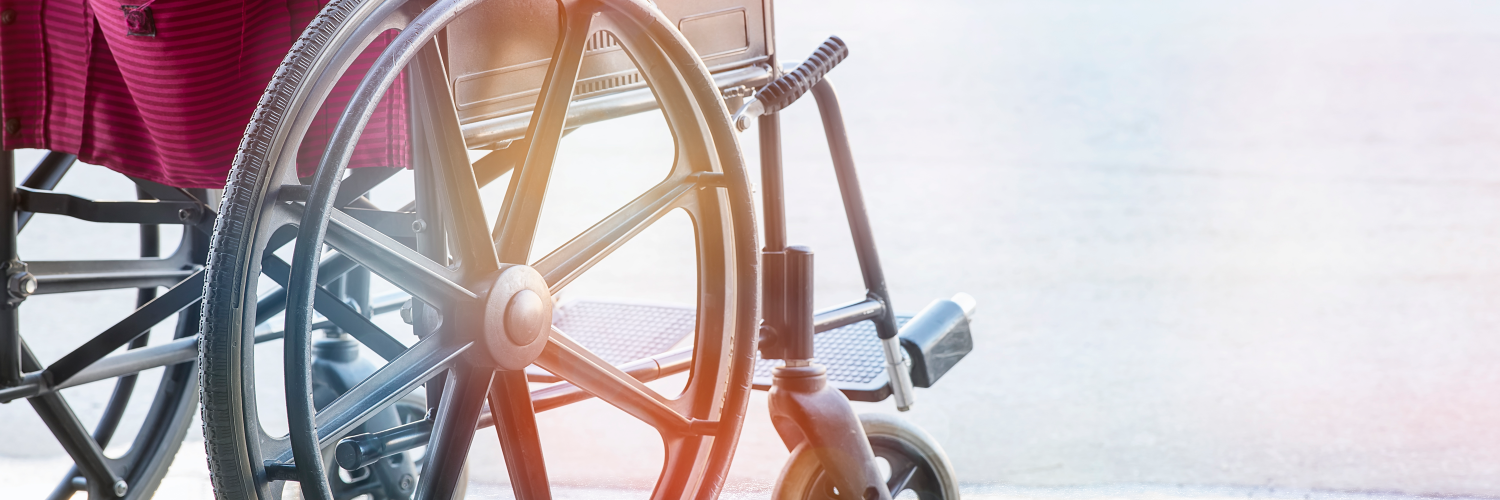Yisro 5780
“And Moshe brought the people forth from the camp towards Hashem, and they stood at the bottom of the mountain”. (Shemos 19:17)
Matan Torah was an extraordinary event of Divine revelation, an otherworldly experience that inspired all of those present with awe and trepidation. Chaza”l viewed Krias haTorah as a reenactment of Ma’amad Har Sinai and instructed us to act with great honor and respect for the Torah that Hashem gave us there, which includes the obligation to stand during Krias haTorah.
The obligation to stand for Krias haTorah applies to both the Ba’al Korei and the person who receives an Aliyah. What if a person is confined to a wheelchair (due to disability or illness) – may he serve as Ba’al Korei or be called to the Torah?
The Mishna in Megila (21a) rules that one may read Megilas Esther while sitting down. The Gemara notes that this does not apply to Krias haTorah b’Tzibur, which must always be performed while standing. This Halacha is derived from the Posuk in Devarim (5:28) which relates that when Hashem taught Moshe the Torah, He said to him, “and you shall stand here with Me” implying that Hashem “stood” – Kaveyachol – while He taught Moshe. If Hashem “stood” while teaching Torah, certainly the Jewish people stood at Matan Torah in awe of Him. (Mishna Berura 141:1 citing the Levush).
The Mishna Berura also mentions another reason to stand – “Just as the Torah was given with awe, so we must treat it with awe”. The source for this is a Yerushalmi cited by the Beis Yosef (ibid.) which relates that R’ Shmuel bar Yitzchak once witnessed somebody leaning on a pillar while reading from the Torah. He informed him that it was forbidden to do so because “Just as the Torah was given with awe, so we must treat it with awe”[1].
The Shulchan Aruch (ibid.) quotes the Mordechai:
One must read [from the Torah] while standing. Even to lean on a wall or a stand is forbidden unless a person is heavyset. (Mordechai, Halachos Ketanos)[2]
The Mishna Berura (ibid. 4) maintains that the same would apply to a sick or elderly person who finds it difficult to stand without support. Nevertheless, even those who do have this dispensation must not lean so heavily that if the object would be removed they would fall, unless they cannot stand at all without support. (Below we will cite a dispute among the Poskim in this regard).
The Mishna Berura and other Poskim only mention that the sick or the elderly may lean during Krias haTorah, but not that it would be permitted for them to actually sit. This precludes those who are confined to a wheelchair from being called to the Torah or serving as Ba’al Korei. This was the conclusion of Rav Ovadia Yosef zt”l (Yalkut Yosef, Krias haTorah uBeis haKnesses, footnotes 141 – Dinei Korei uMakrei 2).
However, there may be a basis for leniency. We will begin by citing two rulings of the Magen Avraham on this topic with the explanatory comments of the Machatzis haShekel.
The Magen Avraham rules that a fit and healthy person may not lean on anything at all during Krias haTorah because doing so is inconsistent with the necessary “awe” that he is supposed to exhibit. The Machatzis haShekel explains that this ruling is actually dependent upon the reasons (discussed above) for standing during Krias haTorah. It is only according to the second reason (“Just as the Torah was given with awe, so should we treat it with awe”) that it would be forbidden to lean at all. However, the first reason (that we must emulate Hashem who “stood” when teaching Moshe the Torah) only dictates that a person must stand, and standing with slight support would still be considered standing.
The second ruling of the Magen Avraham is that a heavyset person may support himself during Krias haTorah. According to the Levush (ibid. 1), he may support himself completely, even to the extent that he would fall if the item that is supporting him would be removed. However, the Magen Avraham (ibid. 2) forbids it, because leaning on something that heavily is the equivalent of sitting down. [3]
The Machatzis haShekel explains that this ruling is based upon the first reason for standing during Krias haTorah, that we emulate Hashem who “stood” when teaching Moshe the Torah. Although a person who is unable to stand without support can still be considered acting in “awe” even if he is leaning, as the support is necessary to prevent him from falling and not an indication of disrespect, since leaning on something heavily is the equivalent of sitting down, one would not fulfill the requirement of “standing” that is derived from the Posuk of “and you shall stand here with Me”.
In spite of his explanation of the Magen Avraham, the Machatzis haShekel sides with the Poskim who permit a heavyset person to lean heavily on something during Krias haTorah. He supports this conclusion from the Yerushalmi (cited by the Mordechai) which relates that R’ Yochanan saw somebody who leaning while reading from the Torah and he informed him that doing so was forbidden because of the Posuk “and you shall stand here with Me”. The man replied that it was permitted because he was heavyset and unable to stand unsupported and R’ Yochanan agreed that it was indeed permitted.
The Machatzis haShekel assumes that the man must have been leaning heavily while reading, otherwise Rav Yochanan would not have cited the Pasuk of “and you shall stand here with Me” which does not preclude somebody lightly supporting themselves during Krias haTorah (as explained above). In spite of that, Rav Yochanan ultimately agreed that it was permitted since the man was heavyset. We see that it is permitted for a person who cannot stand unsupported to lean heavily on something during Krias haTorah.
If leaning heavily is permitted, then it is likely that actual sitting would also be permitted. This is the conclusion of haGaon Rav Asher Weiss Shlit”a (Shu”t Minchas Asher 3:9). Even though the Poskim do not mention this explicitly, since we are only dealing with an Issur d’Rabbanan and one would certainly fulfill the Mitzva of Krias haTorah Bedi’eved, this would be considered a Sha’as haDechak (an extenuating circumstance) and we could be lenient on Simchas Torah or for a Yahrzeit (or on other rare occasions, if necessary)[4].
Rav Weiss added that he himself witnessed the elderly Sanz-Klauzenberger Rebbe zt”l (the Divrei Yatziv) not only receiving an Aliyah but even serving as the Ba’al Korei while sitting, and that this was also the practice of Rav Ovadia Yosef zt”l when he was sick and in his later years. However, this may have been due to the great honor that must be extended to an eminent Torah scholar. The Gemara (Sotah 41a) notes that a Jewish king may read from the Torah while in a sitting position and it the same would possibly apply to a great Sage[5].
Additionally, the Talmud Yerushalmi implies that an element of the requirement to stand when reading from the Torah or receiving an Aliyah is Kavod haTzibur – the honor of the congregation. Rav Moshe Shternbuch Shlit”a mentions this possibility in the name of Rav Meshulam Dovid Soloveitchik Shlit”a (Moadim uZmanim 2:182). He therefore rules that if it is more respectable for a particular disabled person to serve as the Ba’al Korei for the Tzibur, he may do so even while seated. As an example, if the only person who is able to read accurately without mistakes is unable to stand, he may serve as Ba’al Korei instead of somebody who would make many mistakes and need many corrections.
In conclusion, the Poskim agree that where there are not enough people who are able to stand when receiving an Aliyah[6] (as may occur at Minyanim in hospitals or nursing homes), one may be lenient and allow them to sit. One should not skip Krias haTorah in these circumstances, especially as one fulfills the Mitzva Bedieved even while sitting.
[1] Our version of the Yerushalmi does not include this anecdote
[2] This leniency is cited by the Beis Yosef ibid.
[3] The Mishna Berura rules in accordance with the Magen Avraham as noted above.
[4] This was also the conclusion of Rav Saraya Dublitsky zt”l
[5] In fact, this must be true of Rav Ovadia Yosef zt”l who we cited earlier as ruling that it is not permissible for somebody to lean heavily during Krias haTorah, let alone sit down.
[6] E.g. 3 people on a Monday or a Thursday or 8 (7 + Maftir) on Shabbos










Add comment